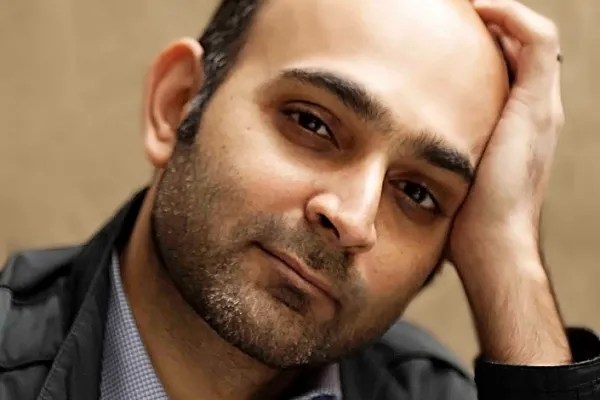Author Mohsin Hamid: Your First Reading Assignment
Campus Life
Published August 27, 2021
So: Have you read the book? You know — “Exit West,” this year’s Smith Reads assignment?
A novel that blends the personal and the political, the real-life and the fantastical, “Exit West” is a deeply intimate story that imagines the forces that drive ordinary people from their homes into the uncertain embrace of new lands. A New York Times bestseller, and a finalist for the 2017 Booker Prize, it’s timely—in just about every way.
And some of you might not have read it yet.
Author Mohsin Hamid will visit Smith virtually on Monday, Aug. 30, to talk with new students about his work.
In advance of his visit, here are Hamid’s thoughts about his book, his readers, a college professor who changed his life, and his own first-year reading experience. (Hint: He wishes now that he’d done things differently.)
You’ve said that writing a novel is like going on a quest. What was the quest behind this book?
I’ve been moving around my whole life. And so this idea of migration—both across geography and in life—is something that I’ve always wanted to write about. Against that background, we live in a world where there’s increasing animosity toward people who have moved—whether it’s Pakistan’s current anxiety about refugees who might come in the wake of the Taliban takeover, or the way some people in the U.S. are concerned about people from Central America coming to the United States. I think a lot of people have this feeling that their home, and the world around them, could just crumble.
Is there a specific message you’re trying to convey with this book?
Well, I think that’s up to the reader. I don’t actually think that a novel is a thing that I write and it gets bound on paper and printed. A novel is the experience that happened to you as you read the book. The novel is a kind of source code from a writer that a reader uses to create.
Were you surprised that this was chosen for Smith Reads? Has it been part of similar programs in the past?
This has been chosen for similar occasions, and I think it’s the ideal situation for a writer. There’s something about young people arriving on campus and reading a text with a degree of rigor, at a point in life when things are changing, and they’re formulating ideas about how the world works and what life is all about. It’s very exciting to a writer to be in conversation with that audience.
You’ve often cited author Toni Morrison as someone who had an influence on your writing. Why was she so important to you as a teacher?
It’s funny you should ask this question. As a student, I arrived at Princeton in the late summer/early fall of 1989. And the book that we were asked to read for our first-year reading program was “Beloved,” by Toni Morrison. She was on the faculty at Princeton, and she gave the opening first-year reading lecture that we had. And that was the first lecture of substance that I had as a college student.
And I’ll say two things: First, I was absolutely blown away by the lecture; and secondly, I hadn’t actually read the book.
Later, I took one of her classes, and she caught me with a copy of her book “Jazz.” And she looked at it, and she signed it for me. And then she leaned toward me and said, “Read ‘Beloved.’ It’s good.’”
And I’ve read it multiple times since, and it is good. And she was a wonderful teacher—in part because of the inspiration she was. In our writing class, she would read our stories out loud, and her voice was divine. But what she really did was make it possible to dream about being a writer. When I arrived at college, I had no idea that was even something you could be—and when I left her class, I thought “I’m going to be a novelist.” She has left a very powerful impression.
What do you hope readers will take away from “Exit West”?
I’m not sure I should say what it is, because it doesn’t matter what I think. There are certainly things that I would like the reader to understand, and things I would like to come across—but if I need to say those things, then perhaps I failed in my job in writing the book. So I would rather not say what I’d like the reader to get, and just have the reader say what they did get.
Photograph by Riverhead (TR)
